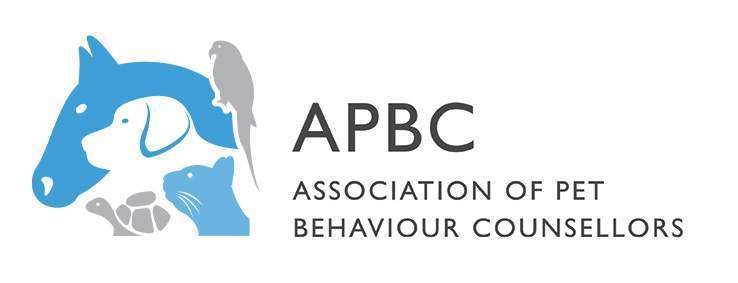Conference hosts
 Day 1 Host: Dr Cat Henstridge – BVSc MRCVS
Day 1 Host: Dr Cat Henstridge – BVSc MRCVS
he APBC is very proud to have Cat as one of our Patrons and we are delighted that she will be hosting the first day of the conference. Cat graduated from Bristol Veterinary School in 2003 and has worked ever since in first opinion small animal practice. One of her clinical passions is client communication and she feels it is a huge privilege to be a part of her patient’s lives from their first vaccinations to their senior years. She has always had an interest in animal behaviour and gains great satisfaction from helping her clients understand their pets and their needs, so they can have the relationship and quality of life they deserve. In addition to her clinical work she has an active role on social media as ‘Cat The Vet’, which allows her to extend enthusiasm for all things pet and veterinary to a much wider audience. Cat has appeared on the BAFTA nominated children’s programme the Pet Factor and regularly makes appearances on other TV and Radio shows. Facebook – Cat The Vet, Instagram cat_the-vet, Tiktok Cat The Vet, Twitter Cat_The_Vet (or you can just say ‘Cat The Vet’ on all social media channels! Day 2 Host: Dr James Greenwood, BVSc MRCVS
Day 2 Host: Dr James Greenwood, BVSc MRCVS
The APBC is very proud to have James Greenwood as one of our patrons and we are delighted that he will be hosting the second day of the conference. James is a practising small animal vet in Bristol. Originally from Yorkshire,
He has been in practice for over ten years- treating everything from parrots to donkeys, dogs, horses and even a 2 day old baby elephant.
James is now the resident vet on BBC One’s ‘Morning Live’ and starred in the BAFTA nominated children’s show ‘The Pets Factor’. He writes for various titles and has appeared at festivals and worked on high profile media campaigns about companion animal welfare. His first book, ‘For the Love of Animals: Stories from my life as a vet’ was published in July, 2023.
James is a passionate advocate for the veterinary profession, animal welfare, conservation, mental health awareness and LGBTQ equality.
Conference Speakers

Dr Rebeca Garcia Pillinos BVetMed, PhD, Dip (AWSEL) ECAWBM, MRCVS, FRSA
One Welfare: The Concept
Synopsis:
One Welfare is a concept that recognises that Animal Welfare, Biodiversity and the Environment and intricately connected to Human Wellbeing. In this, the One Welfare model overlaps and extends the earlier understanding of the relationships between Human and Animal Health, known as One Health. By applying the One Welfare model we can consider both the direct and indirect links between how we keep and interact with animals at individual, population and species level and how these affect their welfare, human wellbeing and the wider environment – at local, national and international levels.
As stated on the One Welfare website since its creation in 2018 “Increasing education and awareness will help to establish different ways of working and improve efficiency within local and global networks of those working in animal welfare, human wellbeing and environmental issues. It will overall support the implementation of sustainable development goals.”
In this talk, Rebeca will give an overview of the One Welfare concept, the framework and how it applies to us all, regardless of the species or context in which we keep/interact with animals. It will set the scene for the conference theme of Companion Animals in the Community – be that the level of the local, national or global community.
Biography:
Rebeca is a graduate of the European College of Animal Welfare and Behavioral Medicine and a certified specialist by the Royal College of Veterinary Surgeons (RCVS) in animal welfare, ethics and law.
She has worked in general medicine and as a government veterinarian since 2001,volunteered with exotic animals and is an internationally recognized lecturer and speaker in the field of animal welfare, educating and giving lectures worldwide. She is past president of the Government Veterinary Association in England and founder of the non-profit social enterprise One Welfare Community Interest Company, launching a global consultation to define the concept of One Welfare – a platform for improving animal and human welfare by recognizing that animal welfare, biodiversity and the environment are connected to human wellbeing. In 2023 Rebeca has also worked for UNEP, being the first animal welfare expert employed by this global organisation to support the resolution on the Nexus between animal welfare, environment and sustainable development.
She has established a tangible presence for this concept and launched initiatives to support One Welfare such as the One Welfare Framework book and the One Welfare World, One Welfare Phoenix and One Welfare Learning projects and a scientific one welfare conference, launching “One Welfare Science slaM (OWSM) to disseminate research in this area. Rebeca is also an International Consultant at the United Nations Environment Programme and has been awarded several honours associated with One Welfare such as the Fellow of the Royal Society of Arts for outstanding achievements to social progress and development; J.S Wight (James Herriot) Memorial Award for outstanding contributions to companion animal welfare.
Stephen Jenkinson MSc, FIPROW
Dogs in the Outdoors in a Post-Covid World
Synopsis:
Stephen will use his first-hand experiences of dog walker management across the globe to illustrate the world-class approaches being developed and delivered in the UK, that help support the human and canine health benefits of daily outdoor exercise, while also minimising any adverse impacts on other people, livestock and wildlife. Where walkers with dogs go, and what they do, can have enduring effects on their local environment, their dogs, and their own well-being: the epitome of a One Welfare perspective. While problems arising from dog walking can often be to the fore, dog walkers can also be a big part of the solution to any problems when their motivations are understood, accepted and managed in a positive way. At a UK-level, Covid showed the innate desire of people with – and without – dogs to be around nature in town, coast and countryside. But Covid also brought new challenges: novice dog owners with little experience in the outdoors, irresponsible commercial dog walkers, and the threat of losing environmental protections introduced under EU regulations. At a local level, we know dog walker behaviours are most influenced by their peers and canine professionals, including behaviour counsellors. Stephen’s talk will help conference delegates guide their clients and communities towards happy, healthy, hassle-free dog walks that are good for the environment… and good for business.
Biography:
Stephen has worked for 21 years across the UK and internationally as a self-employed specialist on understanding and influencing the behaviour of visitors with dogs in the outdoors.
His approach helps government agencies, local councils, landowners and wildlife charities to support the benefits of dog walking while minimising any adverse impacts on livestock, wildlife or other people. Stephen wrote the UK’s first guide to planning for dog ownership in new housing, which helps councils and builders to design-out conflict by providing attractive dog-friendly greenspaces on people’s doorsteps.
Further afield Stephen worked in Bosnia for the United Nations guiding community initiatives to minimise conflict from free-ranging dogs; in San Francisco he advised officials on how to manage dog walking in a city with more dogs than children.
Stephen has been the outdoors columnist for Your Dog Magazine since 2005 and special advisor to the 2017 All-Party Parliamentary Group for Animal Welfare investigation into sheep worrying.
Stephen lives on his 25 acre croft in Scotland which is primarily managed for ground-nesting birds and grazed by Zwartbles sheep for Orkney Tweed.
In his spare time Stephen sails around Scotland’s islands with Teal, his Nova Scotia Duck Tolling Retriever; he is a member of the Royal Yachting Association’s Planning and Sustainability Committee.
Social media handle: www.linkedin.com/in/sjacm


Prof Birgit Stetina
Are Pets Really Good for Humans?
Synopsis:
Many positive bio-psycho-social effects of Human-Animal-Relationship on humans have been documented since the first publications in the field of Anthrozoology. Uncountable publications, white papers, grey literature and unpublished materials since the 1970ies showed that pets seem to be a health promoting factor for all areas of bio-psych-social health. This phenomenon has been promoted as the “pet-effect” and with that pet ownership.
Newer research has started to discuss the animal side for at least 10 to 15 years. During that time, it became clear that this interaction is often more beneficial for humans than animals, even if one is not including the clinical psychological side of Human-Animal-Interactions such as animal cruelty. The beneficial effect for humans was still not questioned (enough?), probably due to a publication bias and other reasons such as public opinion and the role of the media.
2019 we found first results that showed that pet ownership is not beneficial for every human and that there might even be negative effects, especially if an additional critical life event is added. That has been published several times during the last year and the “pet-effect-paradox”, named by Hal Herzog, is the phenomenon that we have to discuss now. Showing our research results since 2019 I am taking you on a journey to discuss the “pet-effect-paradox” and discuss circumstances and prerequisites for a mutually beneficial relationships between humans and animals.
Biography:
Birgit Ursula Stetina is Full Professor for Clinical Psychology at the Faculty of Psychology at the Sigmund Freud University Vienna. She is head of the Department of Clinical Psychology and Head of the Psychological Outpatient Treatment Center. Her HAI Lab studies a variety of psychological constructs in connection with clinical aspects of HAI and researches the burden of professions working within HAI such as veterinarians, dog trainers and professionals offering AAI. The researcher is also working as practitioner with a private practice as Clinical Psychologist (CBT), Health and Forensic Psychologist specialized in complex behavioral problems including dependency and personality disorders.
Selina Gibsone Msc
Welfare and Wellbeing: Assistance dogs and Emotional Support Animals
Synopsis:
I will be talking about how we can support the welfare and wellbeing of dogs that are working in roles where they provide assistance to people in different ways, with the focus being on assistance dogs, but will also include reference to “emotional support animals”. I will address some of the challenges surrounding of supporting welfare in these contexts. The safety and welfare both the animals themselves and of people who come into contact with these types of animals will be discussed, and the relevance of standards to help protect welfare
Biography:
Selina has worked with dogs and people for over 20 years. She currently works at Dogs for Good which aim to bring trained
dogs and people together to help them overcome specific challenges in order to enrich and improve the lives of both. Selina’s role is the Research & Development Manager, actively working in the development of new initiatives and projects in the areas of assistance dogs and animal-assisted intervention (AAI). She has played an active role in creating standards of practice for Animal Assisted Intervention International (AAII) and is now a board member of this organisation. Prior to her current role, Selina worked in several roles at Hearing Dogs for Deaf People, and has also provided training and behaviour support to dog owners through her own business. Selina has spoken at many conferences as well as providing teaching to organisations over the world on the subjects of assistance dogs and AAI. She has a BSc (Hons) in Animal Biology from the University of St Andrews, an MSc in Companion Animal Behaviour Counselling from the University of Southampton, and an MSc in Psychology from Oxford Brookes University. During these studies, Selina completed research projects on wolf behaviour, stimulus control in dogs and anxiety transfer between people and dogs.
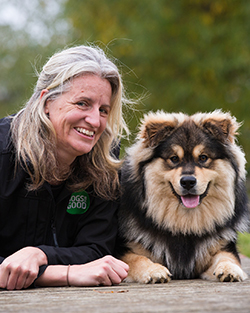

Dr Anne McBride
Companion Animals in the Workplace
Synopsis:
Many, probably the majority, of us find being around animals relaxing and enjoyable, providing an emotional space in which we reduce or, temporarily, escape from the stresses of everyday life. A logical progression from that is to incorporate animals into the workplace to help reduce employee stress, increase productivity, and even facilitate collegiality. Certainly, the Covid Lockdowns meant many worked from home, and found they enjoyed various aspects of this new way of working, including the presence of their pets. Thus, the question of should an employer keep animals in the workplace or allow employees to bring their pet to work may seem quite simple to address in a positive manner to the benefit of all concerned. There is a saying that advises us to beware of things that sound too good to be true. This is valuable for all areas of life, including considering whether companion animals are appropriate in the workplace. Each situation must be considered individually. In this talk we will consider five basic questions that should underlie the decision-making process. These are both ethical and practical questions that will help ensure One Welfare needs are addressed. They are: Why do we want animals in this workplace? What are the potential benefits and potential drawbacks for all involved – human and non-human? What steps need to be taken to reduce the likelihood of any harms? Can these be provided in both the short and long term? How is One Welfare monitored and reviewed?
Biography:
Based at the University of Southampton, School of Psychology, she is a senior lecturer in the field of Applied Animal Behaviour and Human-Animal Interactions: her current areas of interest and research include: responsible ownership; human attitudes, perceptions and interactions with animals; factors in the development of problem behaviours; homelessness, housing and pet owners; lifetime welfare in laboratory and zoo animals; and factors influencing cultures of care and facilitation of good practice in animal related professions (e.g. laboratory, slaughter house and veterinary). She lectures on various aspects of animal behaviour and human-animal interactions in the UK and abroad and acts as an expert witness in legal cases regarding animal welfare and animal behaviour for the defence, plaintiff and prosecution She has published widely in both books and academic and professional journals on various aspects of animal behaviour, animal welfare and human animal interactions
Current positions
Member of the Animal Behaviour and Training Council Programme Recognition Committee (was founding chair of this committee 2016-2020).
Member of the British Standards Institute) committee working group as part of the European consortium on European standards for Assistance Dogs and Assistance dog training (CEN TC 452)
Chair of the Association of Pet Behaviour Counsellors
Member of the Ethics Committee of Marwell Zoo
Honoraria for her contribution to the field of animal behaviour and welfare, and Human- Animal Interactions.
2021 Fellow of the International Society for Anthrozoology
2018: Honorary Life Associate Member of the British Small Animal Veterinary Association
2014: Honorary Associate Professor in the School of Veterinary Science at the University of Nottingham.
2013: Honorary Life Associate Member of the British Veterinary Nursing Association
2005: Patron of the Rabbit Welfare Fund.
2005: Honorary member of ASETRA – the Italian Veterinary Behaviour Association.
2004: Honorary member of the UK Registry of Canine Behaviourists, now The Canine Training and Behaviour Society.
2003: Honorary Teacher at the University of Bristol Veterinary School.
2001: Honorary Life Fellowship of Myerscough College, University of Central Lancashire
Harold Burrows MBE
Dogs working in Disaster Areas and Other Challenging Situations – A Welfare Issue?
Synopsis:
Disasters come in many forms and environments. They may be due to man as in wars or aircraft crashes, or due to nature as in earthquakes and floods. They may occur in urban or rural settings of varying degrees of harshness. The dogs and their handlers who do such search and rescue work search for people that are lost anywhere from the tops of the mountains to the shoreline, sometimes these are people who don’t want to be found. They may be looking for one or many lost persons who may be injured or, sadly found too late. Both handlers and dogs must deal with both acute and chronic stressors that can potentially affect their long-term welfare. The welfare of both handler and dog is dependent on not just their character and training, but also on the support they receive and can give to each other. The behaviour of each can help mediate or exacerbate the long-term outcomes. The international Search And Rescue Dog Association (SARDA) takes the welfare of the human-dog partnership very seriously. For the human there is extensive training, with all having to be a member of a Mountain Rescue Team. Likewise, the dogs are assessed for character, physical fitness and trained using welfare friendly methods. One important aspect is for the humans to be able to have support to cope with the stress of the traumas they witness, and the emotions around ‘being too late’ to save someone and indeed the risks they take to their own lives, as in war and earthquake zones. Such situations and the work involved is also stressful for the dogs and needs to be addressed to ensure their welfare. This talk will illustrate the ways in which we do this, by being able to talk to those who understand the situations, who have such training and deployment experience. This ‘debriefing’ and ‘sharing’ is core to handler welfare, and thus to the handler dog relationship and welfare. The dog’s also need input directed to helping them maintain their emotional balance and resilience, to cope with any post-traumatic stress they are dealing with and to prevent it becoming a welfare issue. Our experience over many decades of this work and how we address these issues can be useful to apply to helping others not least companion dogs who have suffered trauma, often alongside their owners.
Biography:
I joined my first Mountain Rescue team in Llandudno, September 1966. In 1979 I joined Morlise Mountain Rescue team, now called Central Beacons MRT took part in the Crimean Mountain Rescue Exchange in 1994.
I started training my first seach dog with the Search and Rescue Dog Association (SARDA) in 1986 and worked in search and rescue including being involved in the rescue mission for the Lockerbie plane disaster in 1988.
I have since trained and assessed search dogs in Iceland, Greece, Malta, Guam and Australia and was awarded by the Maltese Government help and support in setting up their Urban Search And Rescue dog unit.
I came off the SARDA active call out list in 2019 but retained my connection with SARDA and am currently the president of North East Wales Search and Rescue Team and Chair of the Natial Search and Rescue Dog Association. I was awarded an MBE in 2002 for work with the Emergency Planning for the Welsh Ambulance service.
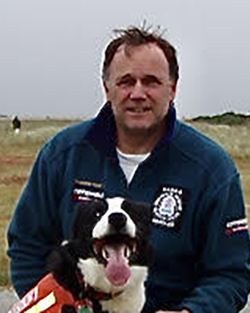

Prof James Serpell
Is Pet Keeping Sustainable? A One Health Perspective
Synopsis:
Recent studies suggest that the ecological footprint (or pawprint) of ‘First World’ dogs and cats is roughly equivalent to that of many humans living in developing countries. Given current concerns about climate change and loss of global biodiversity, the issues raised by these investigations are far from trivial and may in the future lead to increased demands for restrictions or taxes on pet ownership, and growing pressure on the pet food industry to improve the sustainability of its products. This presentation will re-examine the impact and future of pet keeping from a One Health perspective by carefully weighing the potential environmental harms and benefits derived from keeping animals as nonhuman social support providers.
Biography:
James Serpell is Emeritus Professor of Animal Welfare at the School of Veterinary Medicine, University of Pennsylvania. He has published more than 200 articles, books, and book chapters on animal behavior and welfare, human attitudes to animals, and human-animal interactions, including In the Company of Animals (1996), and The Domestic Dog (2017). He is also the creator of the widely used Canine Behavioral Assessment and Research Questionnaire (C-BARQ: www.cbarq.org).
Dr Clifford Warwick PGDip(MedSci) PhD CBiol CSci EurProBiol FRSB
Exotic Pets – The Journey and the Saga
Synopsis:
Exotic pets are variously described as non-native, nondomesticated, nontraditional, or unusual species – but essentially they are animals in the wrong place. This presentation will discuss examples to illustrate how over its long history the selling and keeping of wild animals for pets has manifested in a tragic and largely worsening global situation in which animal welfare, species conservation, habitat ecology, and public health and safety have suffered. Importantly, proven solutions and some recurring obstacles will be also be examined.
Biography:
Dr CliffordWarwick is a human medical scientist and reptile biologist. He holds several advanced academic and professional qualifications specialising in human medicine and in reptile science, as well as approximately 200 peer-reviewed articles, book chapters, and books.

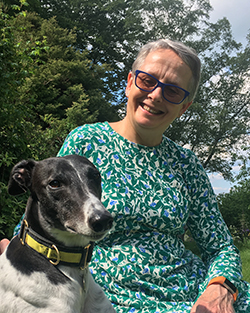
Karen Reed
Pet Homelessness – The International Perspective
Synopsis:
What is meant by pet “homelessness”? How does what we understand as a home, and dog ownership differ around the world? Strays, street, feral, community, roaming, free roaming, owned, confined……. what do these terms mean? I want to share Dogs Trust’s experience in working with communities around the world to address the main canine welfare problems local to those communities, for the long term benefit of both the dogs and humans living side by side.
Biography:
Executive Director of Dogs Trust Worldwide –
Karen is a vet (qualified from the Royal Vet College in 1987)with an MSc in Tropical Veterinary Medicine and has spent much of her working life overseas, interspersed with stints in UK General Vet Practice. She lived and worked in Nepal and in Jordan in the 1990s, and then spent 15 years with working equine welfare charities around the world, before joining Dogs Trust Worldwide as Executive Director in 2017.
Her passion is the bond between animal and human, how that may be expressed differently in different cultures and contexts and how changing human behaviour will be what really changes the lives of dogs (and other animals) for the better and for the long term. She has an interest in sustainable and humane dog population management programmes and, having been “semi owned” by free roaming community dogs when living overseas, she loves a “street” dog in good health, with the freedom to just “be a dog”. She now, however, owns Polly, the best dog in the world, a beautiful pointy nosed long dog (Greyhound!) from Dogs Trust and is now fully converted to Sighthounds!
Dr James Yeates BVSc BSc(Hons) MBA PhD FRCVS
No kill policy: Risks and Rationales
Synopsis:
No kill policies have clear advantages, but also unintended risks in their implementation and the transitions. This talk sketches out some of the considerations for having and implementing no kill policies in ways that avoid or reduce the unintended consequences.
Biography:
James is a veterinary surgeon, with postgraduate qualifications in animal welfare, ethics, law and business administration. He is author or editor of Animal welfare and veterinary practice, the UFAW companion animal welfare handbook, Practical veterinary ethics and Veterinary science: a very short introduction. He was previously Chief Veterinary Surgeon for the RSPCA and is now the CEO of the World Federation for Animals.

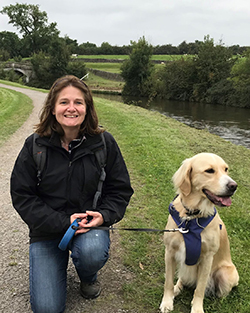
Paula Boyden BVetMed MRCVS
The Link Between Human & Animal Abuse – Exploitation of the Human/Animal Bond?
Synopsis:
It should be no surprise that there are similarities in the abuse of humans and the abuse of animals, including the circumstances of the violence, the actions involved, and the excuses offered. This is due to one common denominator: the human perpetrator. These similarities may be difficult for some to understand. Furthermore, it may be hard to comprehend why someone would deliberately hurt an animal and then seek veterinary attention for it. This talk will explore how perpetrators of domestic abuse utilise the human / animal bond to exert power and control over their victims and the role of pets within abusive relationships. Whilst reporting of suspected abuse is not a mandatory requirement for those working in animal health and welfare, there are moral and ethical considerations that go beyond the animals in our care.
Biography:
Paula Boyden graduated from the Royal Veterinary College, University of London, in 1992. She spent 11 years in veterinary general practice, before moving into a technical role in industry in 2003. Paula joined Dogs Trust in 2010, where she is now Veterinary Director. Paula is current chair of the Links Group, and of the Pet Advertising Advisory Group. She is vice chair of the Canine and Feline Sector Group, sits on the RSPCA’s Prosecutions Oversight Panel and is a member of the Scottish Animal Welfare Commission. In 2017 Paula received the British Small Animal Veterinary Association’s J A Wight Memorial Award for her contribution to the welfare of companion animals.
Dr Stephanie Barker & Dr Nick Maguire
Homeless Owners – Who are they & is Society Helping or Hindering?

Synopsis:
At the start of 2023, there is an estimated 271,000 people homeless in England, including those sleeping rough, in shelters/hostels, and other temporary accommodation. Those who experience homelessness are a diverse group who experience worse outcomes than the general population. They are more likely to have mental ill health, various physical health issues, and mortality rates are staggering – with the average person dying more than 30 years lower than would typically be expected – average age at death was 45 for men and 43 for women. This population are often let down by the services designed to help them, leaving them feeling incredibly alone and isolated. Between 5 and 25% of people experiencing homelessness have pets. Pet ownership while homeless can have benefits for the person, including psychological health, feelings of purpose, avoiding risky situations to protect their pet, and a source of companionship. However, pet ownership can reduce access to housing options and services as many do not allow pets, leaving owners having to decide on housing or keeping their pet. Many choose to stay with their pet and remain homeless.
Biographies:
Dr Stephanie Barker – Stephanie is a Teaching Fellow at the University of Southampton and works with a social enterprise, OutcomeHome, developing and running peer mentor programmes for homeless persons across South East England.
Dr Nick Maguire – Nick is Associate Professor in Clinical Psychology at University of Southampton using evidence-based psychological approaches to provide training, research and evaluation, reflective practice in individual and group interventions. He specialises in providing these services to people experiencing complex and multiple problems of social exclusion and the staff who support them.


Dr Claire Hart PhD
Pugs, Pit Bulls, Parrots, and Pythons – The Issue of Fashion in Pet Ownership
Synopsis:
My research on narcissism and consumerism has consistently shown that individuals who score higher in narcissism are more inclined to purchase symbolic, flashy, and conspicuous items rather than practical and utilitarian ones. The possession of such items allows them to boost their self-esteem, showcase their status, and attract admiration and attention from others. Recent studies have also indicated a similar inclination among narcissists towards exotic or fashionable pet ownership. However, it raises the question: do narcissists make suitable pet owners? My research further reveals that narcissists exhibit a lack of empathy, not only towards strangers and their romantic partners, but also towards their own children. Recent findings suggest that this lack of empathy extends to their pets as well. What happens when the initial allure of owning an exotic pet or fashionable fades away? Could their diminished empathy and potential lack of attachment towards their pets lead to increased animal welfare concerns? Further research is necessary to explore whether specific personality traits are more prone to perpetrating animal cruelty once their own selfish desires have been fulfilled.
Biography:
I am an Associate Professor at the University of Southampton, with an interest in studying all things narcissism related. The general focus of my research is on understanding not just how a narcissist behaves but why, so as to try and mitigate some of the often-negative consequences for those around the narcissist.
